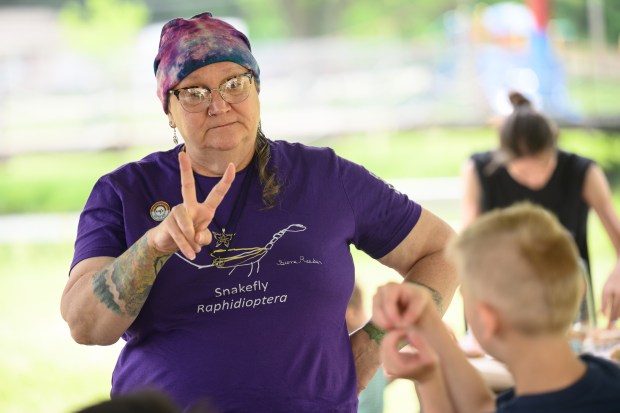Kane County’s youth need better access to mental health care, safer environments and relationships, more community support and an increased understanding of mental health challenges by the adults in their lives, according to a new report from the county’s health department.
The recently-released report was created from the input of 80 students from schools across the county who gathered in February at Elgin Community College for the annual Kane County “Youth Voices Forum on Mental Health.”
Kane County Health Department Executive Director Michael Isaacson said his department uses the annual report to inform monthly trainings and funding decisions, but it also includes actionable steps for others in the community to help improve young people’s mental health.
“It’s a pretty neat day to listen to young people,” Isaacson said about the forum. “They, in some ways, are struggling, and in other ways it’s amazing to see the resilience and just how capable they are of voicing what it is that needs to change in our community to create a better environment.”
In addition to panel presentations and speakers, students who attended the Youth Voices Forum gathered in small groups to talk about what mental health challenges they experience and how the county’s mental health care system could better support them, according to Isaacson.
He said the 2024 Youth Voices Forum on Mental Health Report highlights four key needs identified by the students during those discussions.
The first need identified in the report was for increased access to trauma-informed, culturally sensitive and gender-affirming mental health resources — with a particular focus on the unique experiences of the Latino community, in both schools and the larger community, according to the report.
“Young people may report that they don’t feel like a provider is quite accepting of who they are or is able to communicate in a way that really reaches them,” Isaacson said.
Second, the report indicates students need their families and those who work in their schools to better understand mental health challenges to help break the cycle of stigma around mental health — whether it be asking for help or just talking about the subject.
“We know that it’s a great indicator of health and a great predictor of positive outcomes if a young person has a trusted adult that they can go to and talk to about these things,” Isaacson said.
Students also want safe environments and relationships where they can develop their social skills, healthy emotional vulnerability and positive relationships, according to the report.
Finally, the report that states that students want to feel validated and supported by their parents, caregivers, teachers, mental health staff and peers. It also highlights mental health challenges and issues for the county based on students’ discussions at the forum.
According to the report, COVID-19 continues to have a lingering impact on students across the county. In particular, students reported having trouble adjusting back to in-person classes, dealing with loneliness, as well ass relationship and friendship struggles and generally worse mental health.
Students also reported having a harder time getting into mental health services after the pandemic began, with a student quoted in the report as saying, “There is always a waitlist.”
Another challenge identified by students at the forum was that the Latino community, in particular, has a lot of stigma around mental health. The report cites studies backing up the students’ claims.
In particular, the report explains that Latino people are less likely to seek mental health care services and are more likely to internalize their mental health challenges.
Stigma is often “one of the most significant barriers to receiving mental healthcare,” according to the report.
Also identified in the report was students’ need for connection and support around mental health issues. Students reported that asking for mental health assistance often makes a person vulnerable, and many do not have the confidence needed to speak up for themselves.
“When seeking academic or mental health support from school staff, parents, their peers, or even their community, students reported they were not met with the understanding and assistance they needed,” according to the report. “This disconnection and lack of support deepened feelings of loneliness and isolation, intensifying damage to mental health and overall well-being.”
Students also said they need more structured and formal support from their schools and the community to help them access mental health care services, according to the report.
In addition to outlining students’ self-identified needs, the report includes a number of action steps for schools, parents and the community to take to help students’ mental health challenges.
For schools, the report recommends continuing to educate staff on mental health and related issues, and investing in school mental health staff, along with seven other recommendations.
For parents and other caregivers, the report recommends being curious about children’s interests and feelings, reading about difficult subjects and getting involved in supportive communities, among others.
The report also has a number of recommendations for students to help improve their mental health, including practicing self-care and compassion, learning new coping skills and spending time with people who care for them.
More information about the Kane County Youth Voices Forum on Mental Health and the text of the entire report are available online at www.kanehealth.com/Pages/YVF.aspx
The forum is a program of the Kane County System of Care, which is funded by a seven-year grant from the Illinois Children’s Healthcare Foundation, according to the report.
rsmith@chicagotribune.com




